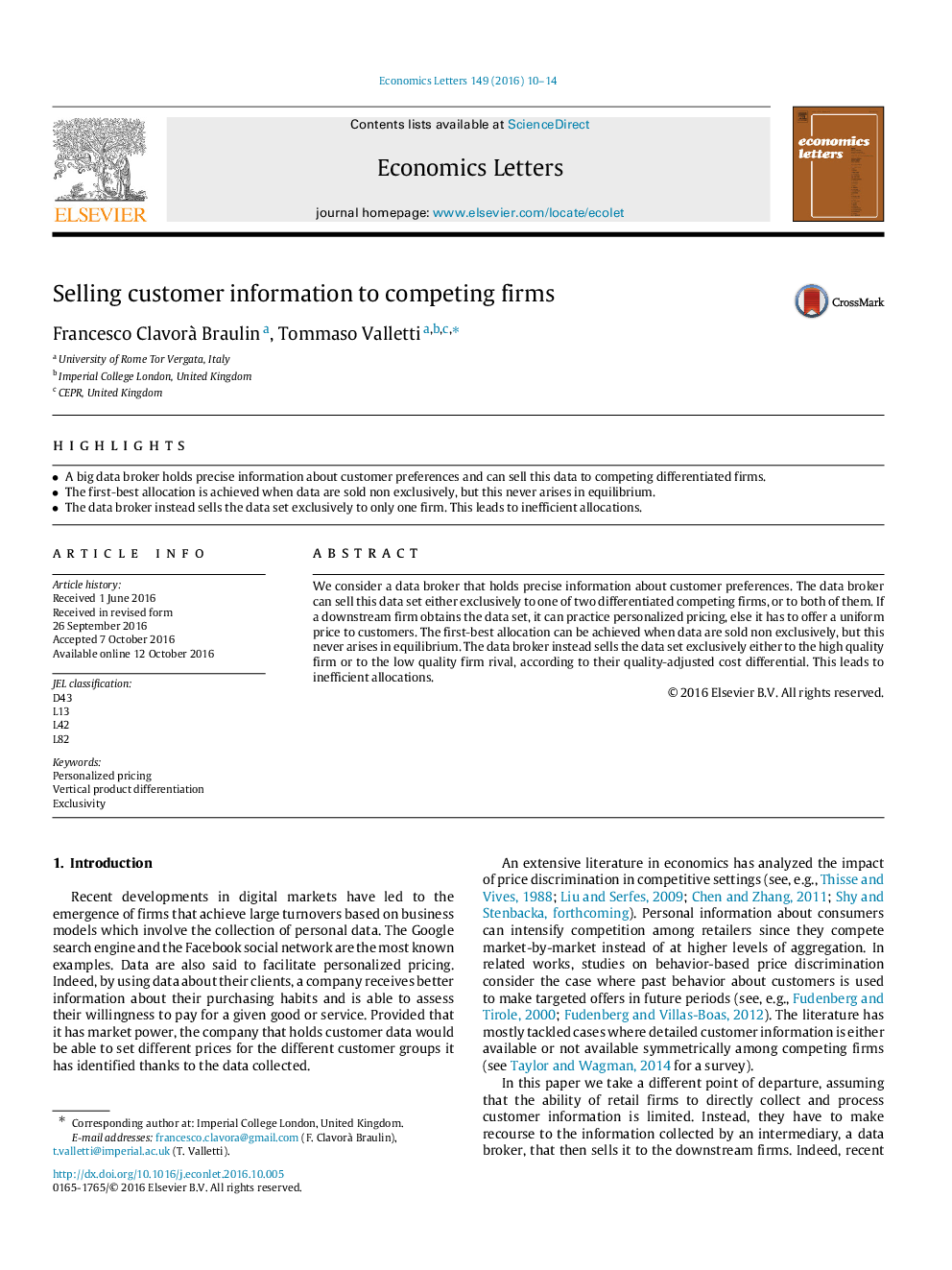| Article ID | Journal | Published Year | Pages | File Type |
|---|---|---|---|---|
| 5057936 | Economics Letters | 2016 | 5 Pages |
â¢A big data broker holds precise information about customer preferences and can sell this data to competing differentiated firms.â¢The first-best allocation is achieved when data are sold non exclusively, but this never arises in equilibrium.â¢The data broker instead sells the data set exclusively to only one firm. This leads to inefficient allocations.
We consider a data broker that holds precise information about customer preferences. The data broker can sell this data set either exclusively to one of two differentiated competing firms, or to both of them. If a downstream firm obtains the data set, it can practice personalized pricing, else it has to offer a uniform price to customers. The first-best allocation can be achieved when data are sold non exclusively, but this never arises in equilibrium. The data broker instead sells the data set exclusively either to the high quality firm or to the low quality firm rival, according to their quality-adjusted cost differential. This leads to inefficient allocations.
